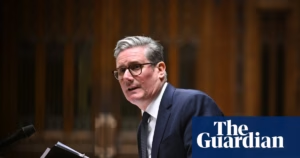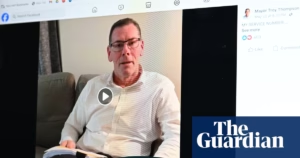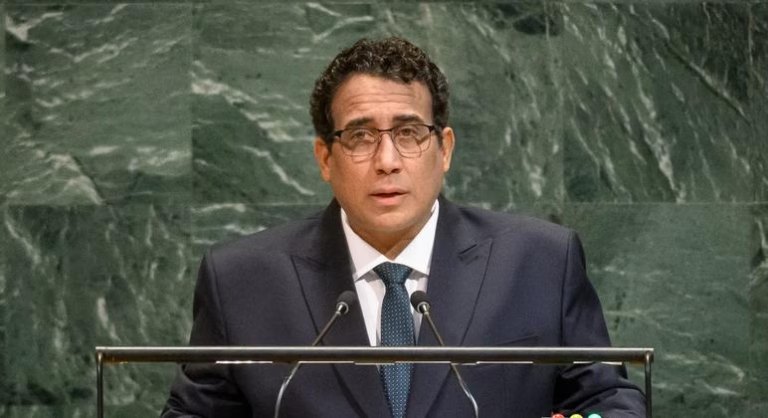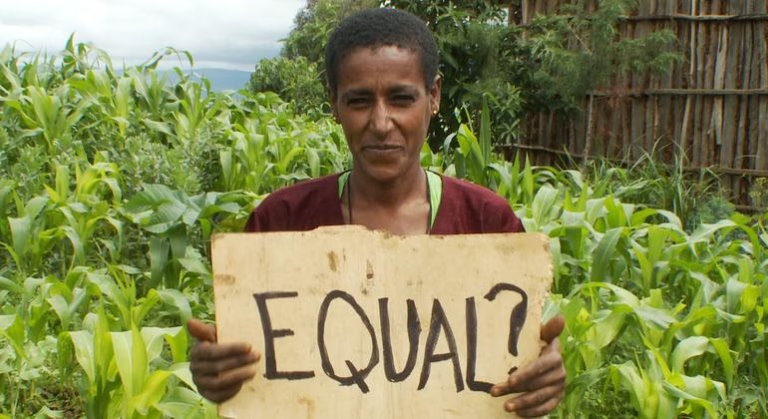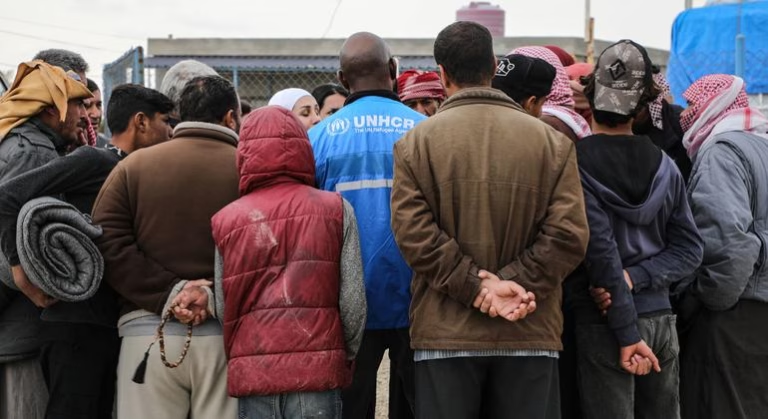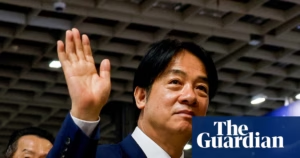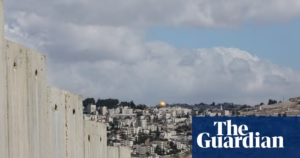
Laurent Saint-Cyr depicted a grim scenario: widespread murders, gang rapes, famine, and over a million uprooted individuals.
“This is a conflict between criminals who seek to impose violence as the societal norm, versus an unarmed populace striving to maintain human dignity,” he stated.
“Armed gangs now dominate much of the capital, Port-au-Prince, continuing to spread terror across the nation.
Support mission at breaking point
For the past 15 months, a Kenyan-led Multinational Security Support Mission (MSS), endorsed by the Security Council but dependent on voluntary contributions, strives to restore stability.
Out of the 2,500 police officers initially committed, fewer than 1,000 have been deployed. Despite securing Haiti’s primary airport and reopening some roads, the force has not stopped Port-au-Prince’s descent into near-chaos.
“Their courage alone was insufficient to curb the crisis,” Mr. Saint-Cyr informed the UN General Assembly.
Advocacy for a new ‘suppression force’
As the MSS mandate approaches its expiry in early October, Haiti, supported by the United States and Panama, is advocating for a 5,500-strong Gang Suppression Force.
Washington seeks for this fresh mission to be under the mandate of Chapter VII of the UN Charter, which permits the use of force to counter threats to peace.
The proposal includes setting up a new UN Support Office in Haiti, with a clear mission objective: to dismantle gangs, safeguard critical infrastructure, and reinstitute minimal institutional stability.
“Haiti yearns for peace. Haiti awaits peace. Haiti has the right to peace,” Mr. Saint-Cyr declared, cautioning against a security void should the current mission cease. A vote is anticipated in the forthcoming days.
Political transition remains incomplete
Security measures alone cannot resolve Haiti’s disarray. Following President Jovenel Moïse’s assassination in July 2021, the nation lacks an elected government. Successive interim administrations have failed to reestablish order.
The transition council, established in 2024 post a CARICOM-brokered compromise, aims to organize elections.
Saint-Cyr stated that over 85% of polling stations have been identified and $65 million secured. “The Haitian people must choose their leaders,” he affirmed, emphasizing the importance of free and credible elections in concluding the provisional governance.
Seeking ‘reparation’ for independence
The Haitian leader also demanded reparations from France, referencing the 1825 ordinance that compelled Haiti to compensate France with 150 million gold francs for acknowledgment of its independence—a “ransom” that depleted its economy until 1947, as he recounted to the assembly.
“Our voices rise to demand reparation—not in a spirit of retribution, but with a conviction for justice and truth,” he asserted. France’s National Assembly recognized the grievance in June; Haiti has since established a National Committee for Reparations and Restitution.
“France now has a chance to pen a new chapter in its history with Haiti,” Mr. Saint-Cyr urged, echoing broader UN discussions on colonial reparations.
Beyond revisiting historical injustices, the Haitian leader highlighted the urgency to weaken gang dominance. “Each passing day empowers the gangs strangling Haiti,” he cautioned. “If the Security Council doesn’t act promptly, the nation risks plummeting deeper into disorder.”
Source: https://news.un.org/feed/view/en/story/2025/09/1165960
